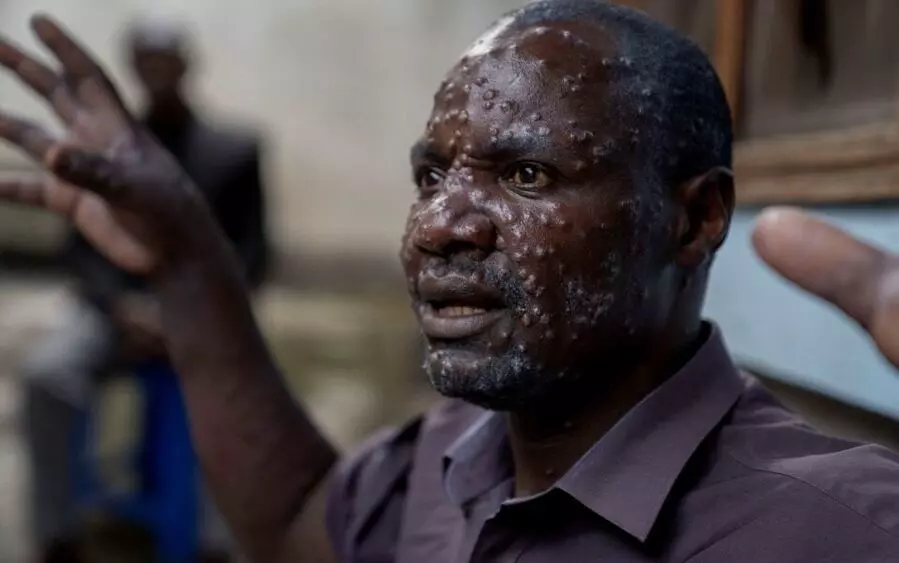The World Health Organization (WHO) declared the mpox outbreaks in Congo and other African countries as a global emergency due to increased cases among children and adults across over a dozen nations, with a new strain of the virus spreading. Vaccine availability remains scarce on the continent, sparking concerns that these vaccines may not be effective and could even worsen the situation by causing mutations or outbreaks themselves.
The Africa Centers for Disease Control and Prevention (Africa CDC) previously revealed that mpox cases were detected in 13 countries this year, with more than 96% of cases and deaths occurring in Congo. Death rates have risen by 19% compared to the same period last year, resulting in over 14,000 cases and 524 fatalities.
WHO Director-General Tedros Adhanom Ghebreyesus expressed concerns about the potential spread of mpox beyond Africa, urging international support to curb its transmission. The majority of mpox cases in Congo involve children under the age of 15, who account for 85% of deaths caused by the virus.
Epidemiologist Jacques Alonda highlighted the particular risk posed by mpox spreading through camps for refugees in eastern Congo, where overcrowded hospitals force patients to share rooms with those infected with the virus. International charities have reported that Congo’s health system is already under strain due to malnutrition, measles, and cholera outbreaks.
Mpox has been identified for the first time in four East African countries: Burundi, Kenya, Rwanda, and Uganda. These outbreaks are connected to the one occurring in Congo. In addition to these, health authorities in Ivory Coast and South Africa have reported separate outbreaks of a less dangerous form of mpox that spread globally in 2022.
Scientists discovered a new, deadlier strain of mpox with a mortality rate of up to 10% in a Congolese mining town earlier this year, raising concerns about its increased contagiousness. Transmission primarily occurs through close contact with infected individuals, including sexual encounters. In contrast to previous outbreaks where lesions were mainly found on the chest, hands, and feet, the new strain’s manifestation in more concealed areas makes it harder for people to detect their infection, increasing the likelihood of unknowingly spreading the virus.
In 2022, WHO declared mpox a global emergency after its transmission reached over 70 countries that had not previously reported cases of the disease, mainly affecting gay and bisexual men. Western nations managed to contain the spread with vaccines and treatments; however, these options remain scarce in Africa.
Michael Marks of the London School of Hygiene and Tropical Medicine suggested using smallpox vaccines, a related disease, as an alternative option in the absence of licensed mpox vaccines in the West. He emphasized the need for a large supply of vaccine to protect sex workers, children, and adults living in outbreak regions.
Congolese authorities have requested 4 million doses of the mpox vaccine, primarily intended for children under 18 years old. While WHO’s emergency declaration aims to encourage donor agencies and countries to act, past global responses to similar emergencies have been inconsistent. Infectious diseases expert Dr. Boghuma Titanji cautioned that the world must take decisive action in response to this emergency declaration, rather than repeating past mistakes.

